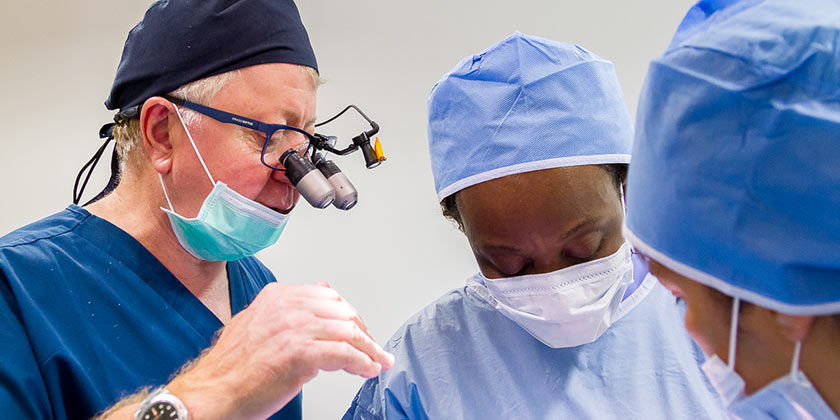Prof Cemal Ucer advises: “Cultivate a love of productive learning.”
Many of us have grown so used to the hectic pace of modern life, of feeling that we never have a moment to spare, that when faced with free time we are suddenly at a loss with what to do with it. How many times have you made informed clinical decisions all day with a clear head, but when faced with what to have for dinner you were stumped?
Medically we know that rest is essential for repair and recovery, yet it can be hard to apply that to our mental activities. Sometimes “doing nothing” is precisely what we need to do, to be ready for our next burst of physical activity, but what can be done to switch off our minds?
One way to make downtime productive is to cultivate a love of learning. Learning for learning’s sake can be very enjoyable, and learning more about a specific facet of dentistry is not just useful, but it can also open up new opportunities.
If faced with extended downtime, as we were (and in some cases, still are) during lockdown, learning can help us expand our operations or even light up a path we hadn’t considered before. Paradoxically, when people don’t know much about a subject, they have a tendency to assume they are more competent and know more about it than they really do. This is known as the Dunning-Kruger effect [1].

However, as our knowledge of a subject grows, we begin to see just how much more there is to learn, and as our knowledge grows so does our confidence. For example, one of the more intimidating areas in dentistry is the provision of dental implants, but once mastered it can be particularly rewarding. With good case selection and practice, implants have a fantastic success rate and offer the next best thing to the original tooth.
Everything that we learn adds to our general store of knowledge, and things that might seem quite unrelated at first can provide us with insight in other areas. Our particular area of expertise – the orofacial region – is phenomenally complex and there can be considerable variation between patients, which might lead to clinical pitfalls.
Understanding the potential sites for, for example, iatrogenic injury, does not simply help to avoid them when performing surgery, it can improve our ability to note and diagnose other issues affecting those same areas, and thus make a successful outcome more predictable. But no matter how perfect your clinical skills in placing an implant, failures do sometimes occur and the problem is often with maintenance.

It is critical to impress upon patients the importance of post-operative implant maintenance. The implant and its surrounding tissue are not immune to neglect. An implant is not a “set it and forget it” procedure, it requires cleaning and monitoring, in fact annual maintenance reduces the failure rate of implants by 90%, when compared to patients who forgo follow ups [2].
This underscores your patients’ need to attend annual check-ups. No matter how good the implant system and how perfect your technique, problems can occur, but most are correctable if complications are caught early.
Implants are an area where it is best to stay abreast of technological developments which have progressed rapidly in recent decades. That’s not to decry the value of understanding an older system; implants are not short-term solutions and years from now you might see patients who were fitted with implants from a decade ago.
Understanding these earlier systems can help in anticipating potential complications in restoring or replacing the implant. So, in conclusion, the next time you have a free moment, instead of worrying about how to spend it, take a look at the world of dental implantology and dive right in.
Author

Professor Cemal Ucer is a specialist oral surgeon, founder and leader of Ucer Education, which is at the forefront of postgraduate education in dental implantology in the UK. Through rigorous application of theory to practice, gaining Ucer Education’s PG Cert has taught hundreds of satisfied dentists the art of dental implantology, as well as other facets of dentistry.
He adds: “Our alumni can be fully confident in the skills and knowledge they acquire with us.” For more information, visit www.ucer.education or call 0161 237 1842
References
1] Kruger J., Dunning D. Unskilled and unaware of it: how difficulties in recognizing one’s own incompetence lead to inflated self-assessments. Journal of Personality and Social Psychology. 1999; 77(6): 1121-1134. https://psycnet.apa.org/doi/10.1037/0022-3514.77.6.1121 March 27, 2020.
2] Ribeiro R., Pinho R., Dias R., Tortamano P., Vajgel A., Park J., Cimoes R. Change of prevalence in dental implant failures according to different criteria. Health Science Journal. 2018; 12(6): 606. Click HERE. March 27, 2020.

